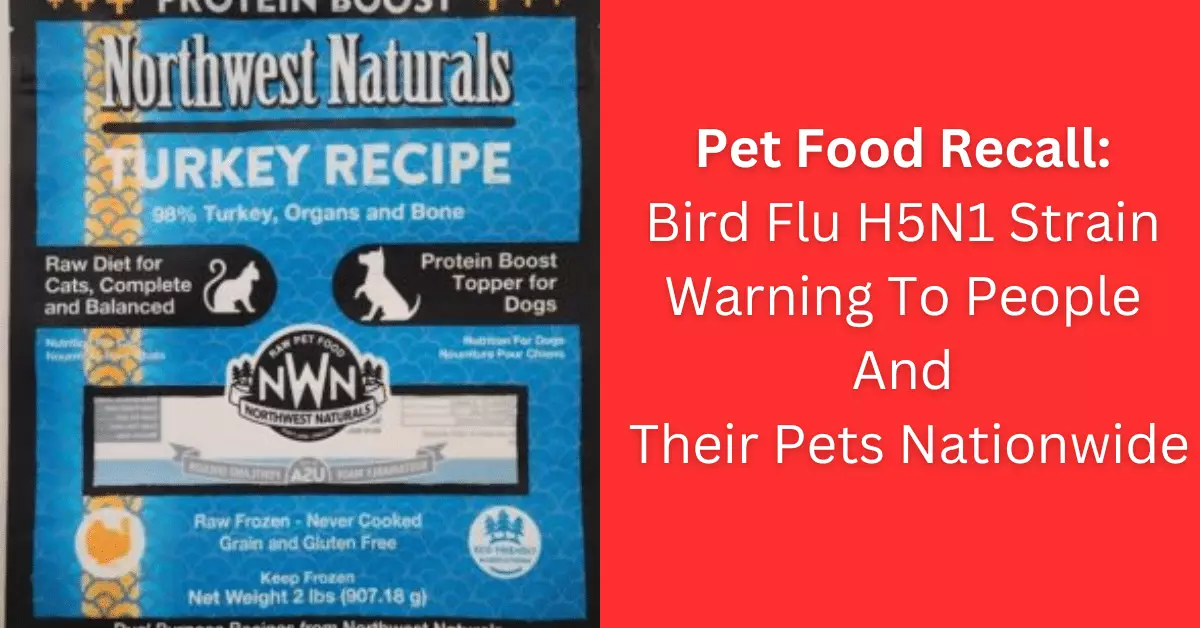The recent alert issued by the Oregon Department of Agriculture (ODA) regarding a strain of the Highly Pathogenic Avian Influenza (HPAI), specifically H5N1, should serve as a significant wake-up call for pet owners across the United States. The rescue of a house cat in Washington County that succumbed to this virulent strain after consuming a contaminated raw frozen pet food product has raised serious concern about the risks associated with feeding pets raw diets. The situation brings to light critical questions about pet food safety standards and the broader implications for human health.
The ODA’s investigation revealed a disturbing connection between the death of the house cat and samples taken from Northwest Naturals brand Turkey Recipe raw pet food. The testing, conducted by both the U.S. Department of Agriculture’s National Veterinary Services Laboratories (USDA NVSL) and Oregon State University’s Veterinary Diagnostic Laboratory, found an exact genetic match between the virus present in the pet food and the one that infected the cat. Dr. Ryan Scholz, the ODA’s State Veterinarian, emphasized the confidence in this assessment, noting that the cat had no prior exposure to potentially infected environments.
This alarming revelation prompted Northwest Naturals to initiate a voluntary recall of its 2lb Feline Turkey Recipe raw and frozen pet food. Customers are urged to discard any products with specified “Best if used by” dates and to seek refunds. It is a stark reminder of the potential hazards that can reside within raw pet food, underscoring the need to evaluate the benefits versus risks of such diets.
While the cat’s tragic demise is a pivotal focus, the broader implications for human health cannot be ignored. Fortunately, health authorities, including the Oregon Health Authority (OHA), have reported no confirmed cases of HPAI in humans linked to this incident thus far, and the overall risk remains categorized as low. Nevertheless, the incident triggers necessary scrutiny about the ways in which pathogens can transfer from animals to humans, particularly when there are shared environments.
Since 2022, a One Health approach has been adopted by OHA and ODA together, closely monitoring human exposure to animal-borne illnesses such as avian influenza. This proactive partnership aims to mitigate risks and improve the public health response to outbreak situations.
In light of this urgent scenario, health officials have issued safety recommendations for both pet owners and the general public. The advice includes:
– Avoidance of raw or undercooked meat and dairy products.
– Minimizing contact with sick or deceased animals.
– Rigorous handwashing protocols after handling any raw meat or animal remains.
– Reporting any instances of sick or dead wild birds to the ODA.
These preventative measures are key not only in safeguarding pet health but also in reducing the potential risk of zoonotic diseases affecting humans. By maintaining stringent hygiene standards and being mindful of food sourcing, both pet owners and their furry companions can enjoy safer interactions.
This significant health alert highlights the importance of being vigilant when selecting pet food and the potential ramifications of feeding pets raw diets. While many pet owners might opt for raw food in hopes of providing their pets with a nutrient-rich diet, incidents like these underline the serious risks involved. Whether it be bacterial infections like Salmonella and E. coli or the more obscure dangers posed by strains like H5N1, the risks are tangible.
As the ODA plans to test milk from every commercial dairy across the state due to avian flu concerns, it’s clear that this issue spans beyond pets. With neighboring states also reporting HPAI cases in livestock, a comprehensive public health response is crucial. Awareness and education are essential components in navigating these challenges, ultimately guiding pet owners in making informed decisions regarding their pets’ diets and health.
The case serves as a reminder of the interconnectedness of food safety, public health, and responsible pet care. The narrative surrounding the dangers of raw pet food is evolving, and it is imperative for consumers to stay informed and proactive to ensure the well-being of both their pets and themselves.

